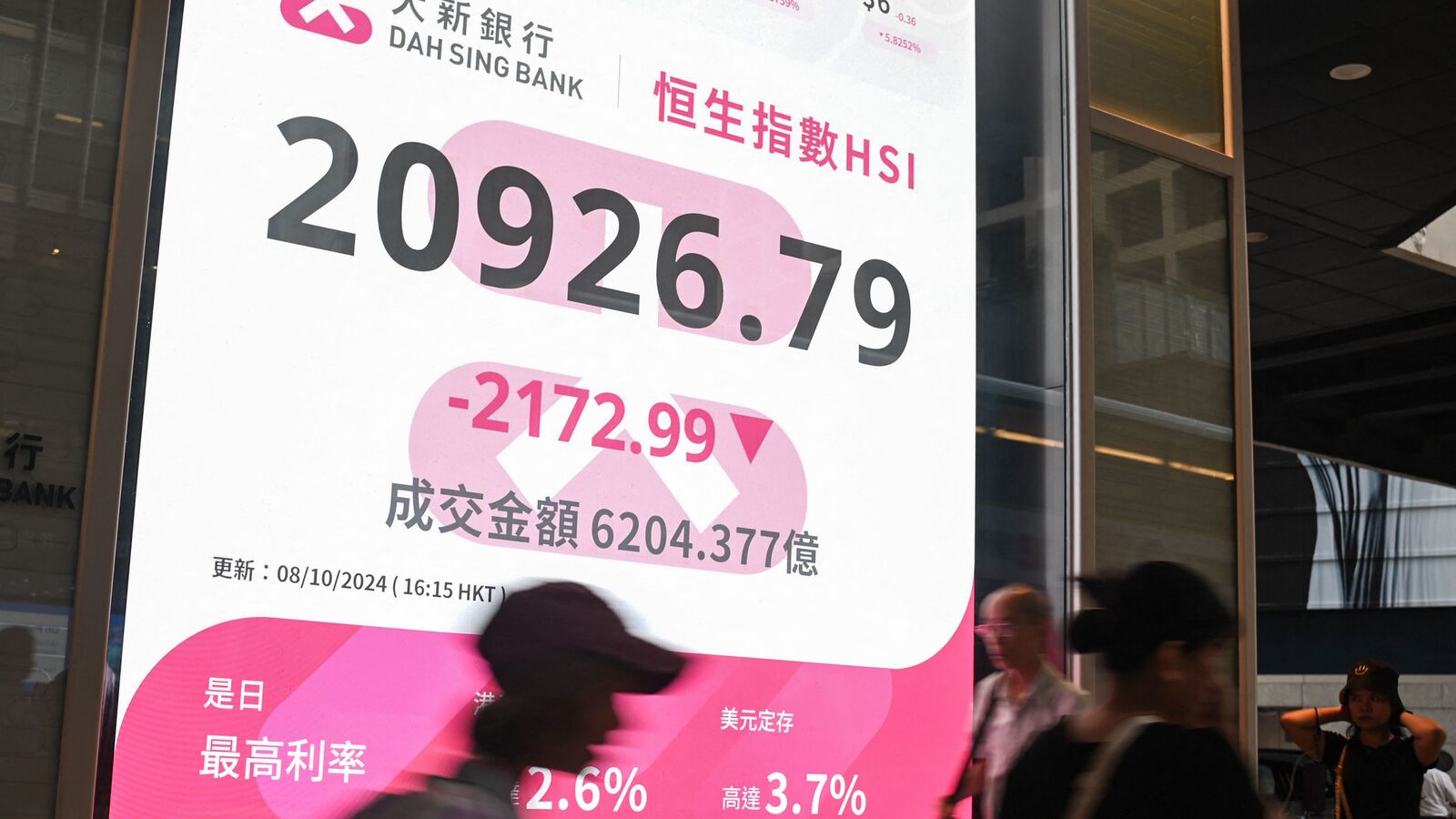Recent Declines in Global Markets and Economic Outlook
The Hang Seng Index, which reflects the performance of the Hong Kong stock market, has experienced a significant plunge of 9.4 percent—its most considerable drop since the financial crisis of 2008. This sharp decline has erased the remarkable gains that had been achieved during recent Chinese holidays, raising concerns among investors and analysts alike.
China’s Economic Confidence Amidst Uncertain Stimulus
In a recent statement, Zheng Shanjie, the Chairperson of China’s National Development and Reform Commission, expressed a strong belief that China remains “fully confident” in meeting its economic targets for 2024. To this end, the government is set to allocate 200 billion yuan (approximately $28.36 billion) from the forthcoming budget to bolster investment projects and assist local governments. Despite this promising announcement, market reactions have been less than favorable, with shares of major Chinese firms listed in the U.S. suffering notable losses. Companies such as Alibaba Group, JD.com, and PDD Holdings all saw their stock prices drop between 5.9 percent and 6.3 percent.
Market Repercussions of the Economic Stimulus Plans
Unfortunately, the measures introduced by the National Development and Reform Commission did not include any substantial investment initiatives, contributing further to the Hang Seng index’s downturn. Analysts believe that the lack of decisive actions raised questions about the efficacy of the proposed measures and led to disappointment among investors, resulting in global stock market declines.
U.S. Stocks and Market Reactions
While international markets faced downward pressure, U.S. stocks displayed a contrasting trend. Early trading indicated that the benchmark S&P 500 index was making a recovery from a steep drop of nearly 1 percent in the previous session, thanks to gains in the technology sector which climbed about 1.3 percent.
Wider Economic Implications
The ripple effects of China’s economic stimulus—or lack thereof—were felt not just in Asia but also across Europe and the United States. Stocks from companies heavily reliant on trade with China experienced declines, with Estee Lauder dropping by 2.3 percent and Wynn Resorts seeing a plunge of 2 percent. Moreover, the commodities market was similarly affected, as Brent crude futures fell by nearly 2 percent, indicating traders’ concerns about reduced demand stemming from China’s underwhelming economic measures.
Future Economic Projections
According to the World Bank, despite the rollout of stimulus efforts, China’s economic growth is projected to slow further to 4.3 percent by 2025. This figure marks a decline from the earlier expected growth of 4.8 percent in 2024. Such a slowdown is likely to exert additional pressure on other economies in East Asia and the Pacific region, including Indonesia, Australia, and South Korea, which are forecasted to see growth rates decrease from approximately 4.8 percent in 2023 to about 4.4 percent in 2025.
Conclusion
The current economic landscape reflects a complex interplay of growth prospects, market sentiments, and geopolitical dynamics. As China endeavors to maintain its economic targets amidst a backdrop of global uncertainties, stakeholders—ranging from investors to policymakers—must navigate these challenges with caution. The implications of recent market fluctuations will likely be felt across various sectors and regions, making it imperative for all parties to stay informed and responsive to ongoing developments.










